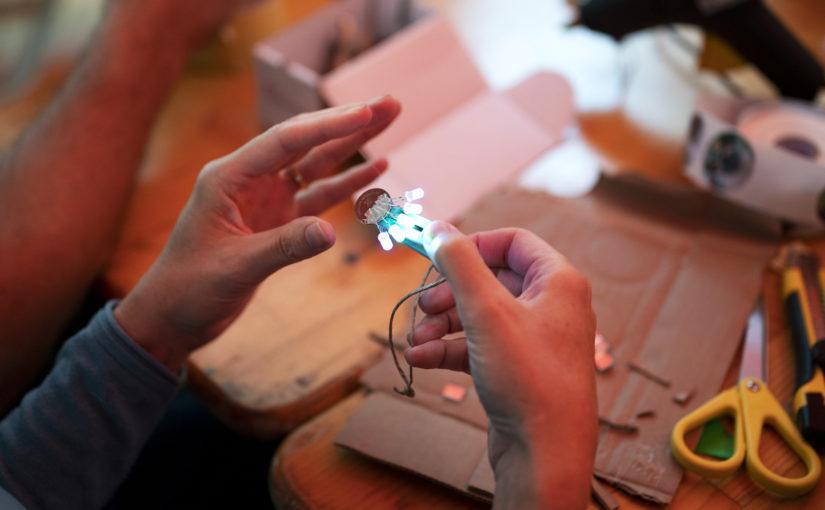As you might have guessed from the title of this post, Thursday’s timetable was filled with workshops. Even though we really try hard to deliver news from PIFcamp on time, we are experiencing a minor setback, which is as much due to the fact there was a lot going on as it is to the gargantuan amounts of rain yesterday. There’s only so many dry working spaces when the PIFlake starts to form. However, this did not completely spoil the participants’ plans for the workshops. Shortly after breakfast, the first in the series of Touch Network workshops took place – Meta’s brooches and other decorations making workshop with LEDs. Also, one of the most popular PIFworkshops ever.
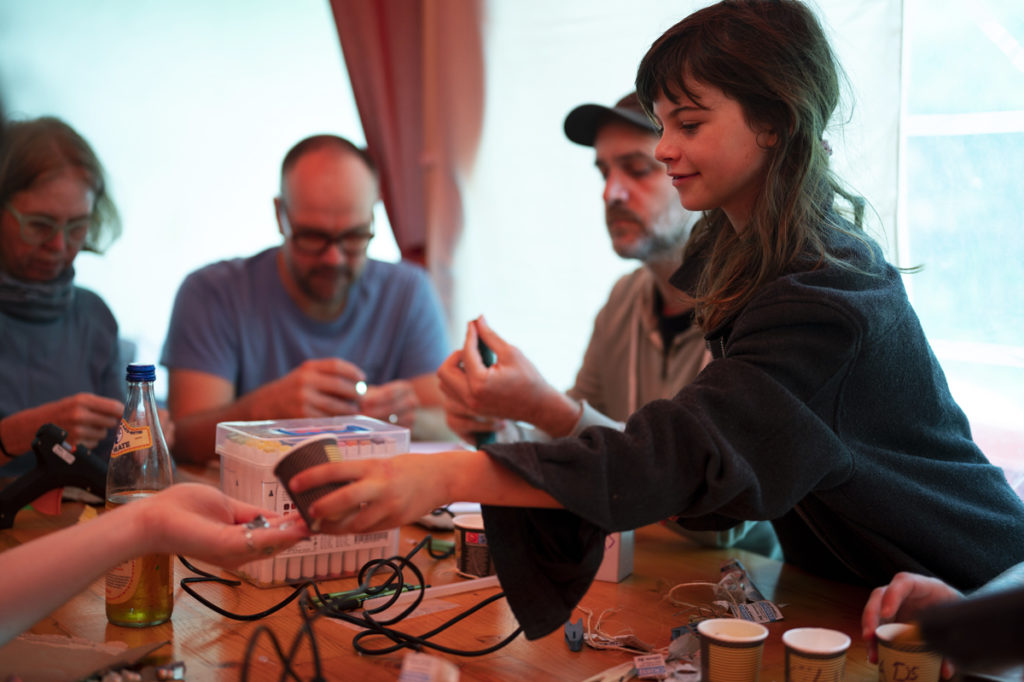
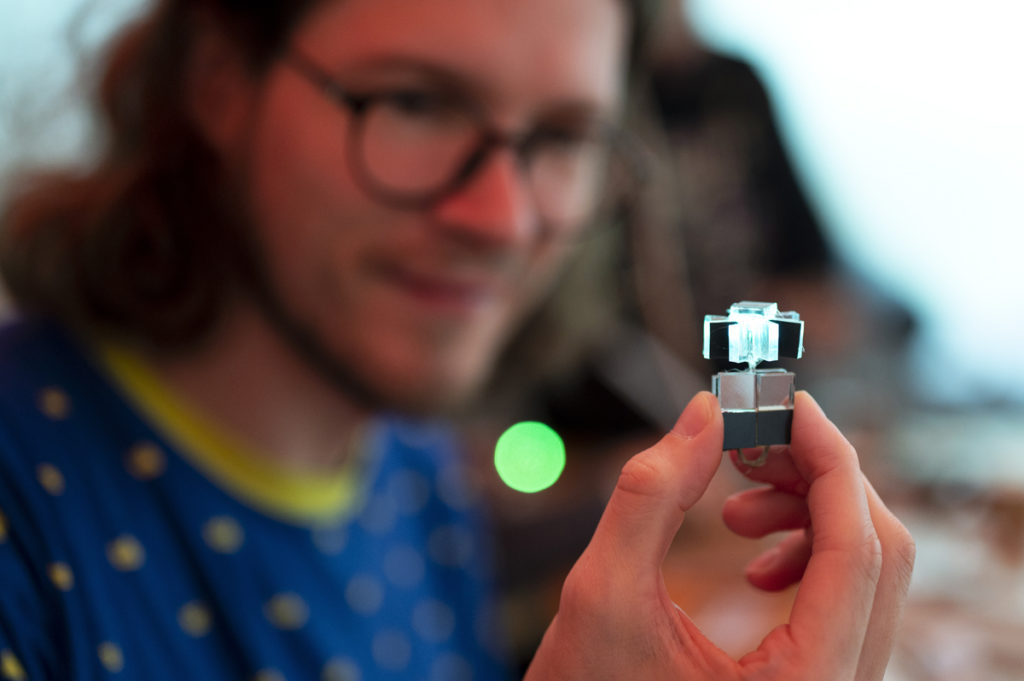
Meanwhile, Rob was in the tent preparing the presentation of the second workshop in the Touch Networks series, a workshop on making experimental musical instruments. After an introductory tech explanation, the participants went on a quest to find suitable bases for their instruments. Once they were satisfied with their findings, they started to upgrade the planks and logs into touch-sensitive musical instruments that send messages to Rob’s SuperCollider via the OSC protocol.
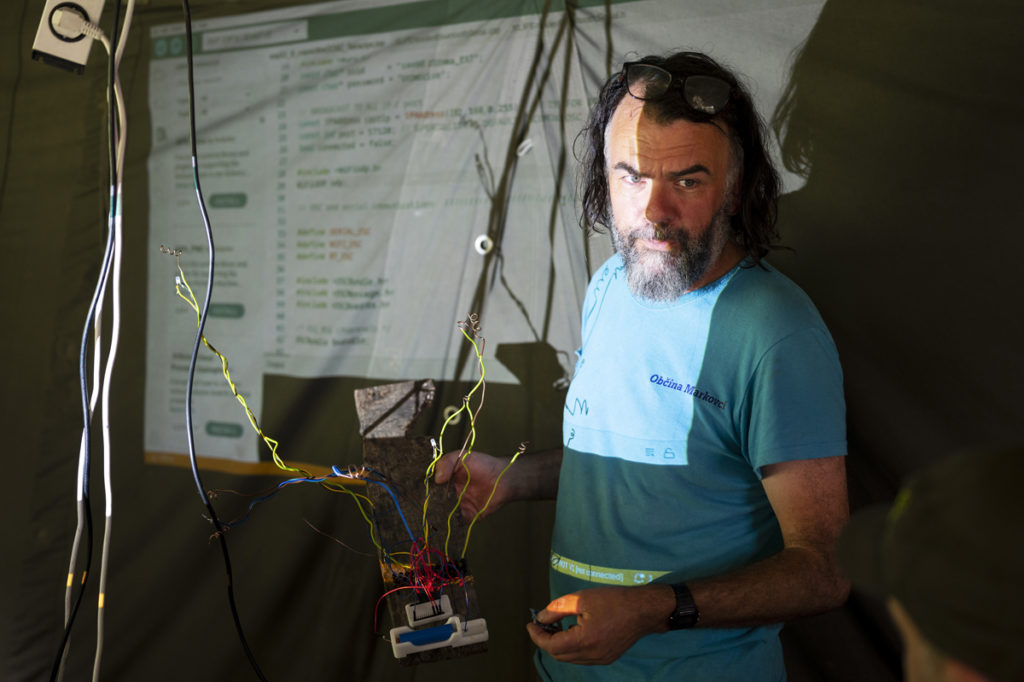
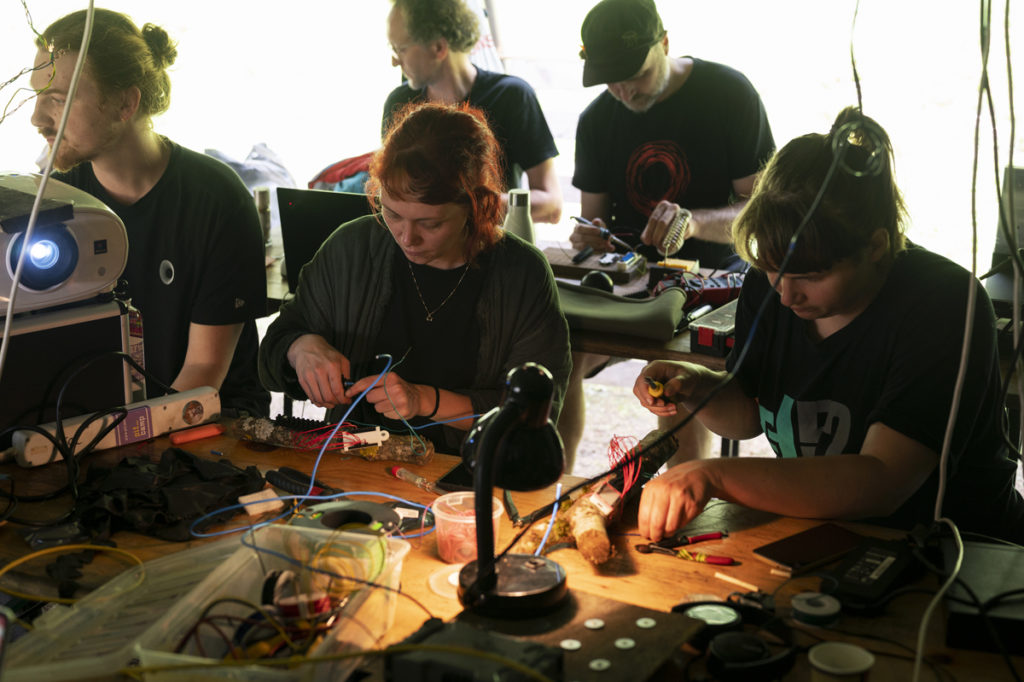
Simultaneously, the Instant Party workshop by Lina Bautista was taking place on the terrace. She introduced the participants to live coded music, explained the core principles of live coding and talked about the Tidal Cycles environment, which is one of the most popular tools among musician-coders. The practical part of the workshop followed. Participants experimented with live coding in MiniTidal and (for an instant) experienced collaborative coding using Estuary, a browser-based environment. As Alicia enthusiastically explained, the best feature of this collaborative coding tool is that it synchronizes the timing of all the participants, making it the ideal solution for remote participatory coding.
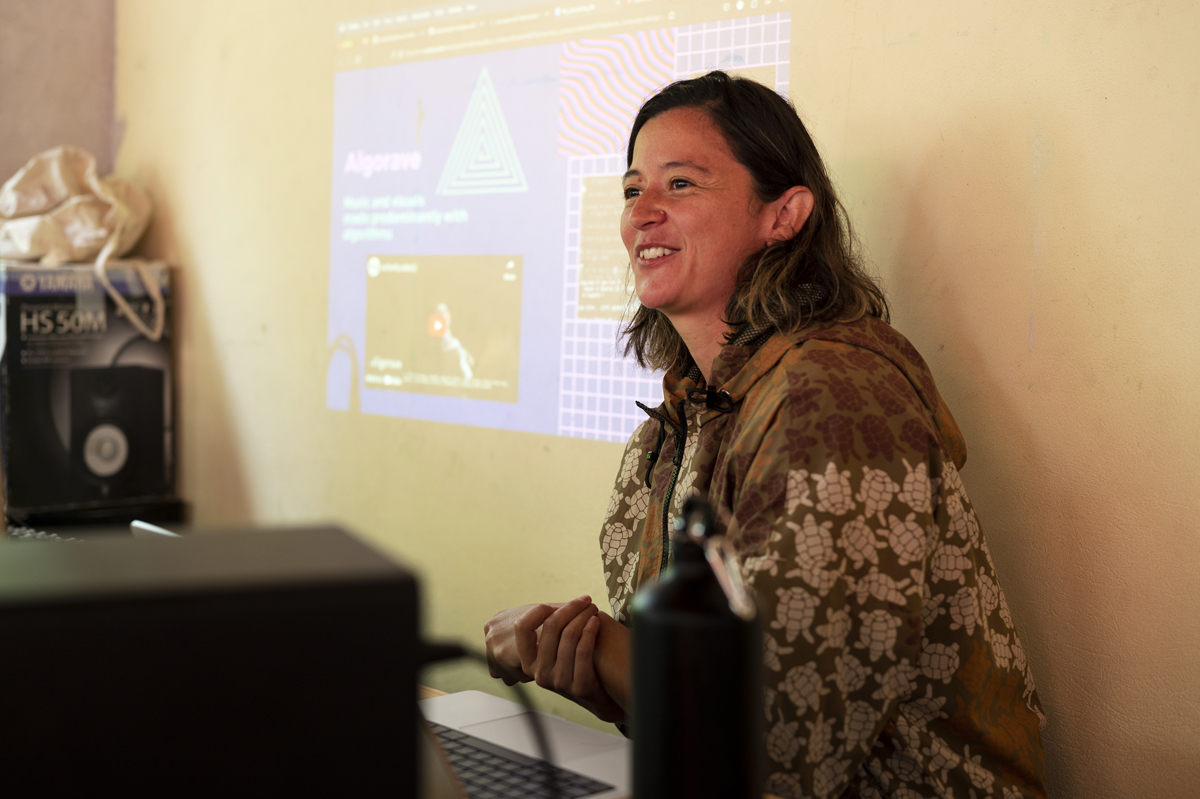
We also talked to one of the attendees, Julia, who had a great time during Lina’s workshop, and particularly remembered her saying that the whole point of live coding music is to have fun. She says that the workshop lived up to its name as it offered instant fun. On the spot, we also caught Lina’s excellent explanation of another core principle of live coding – it’s not just about sharing the screen (to quote one of the points of the manifesto), but about sharing in the broadest sense. By giving listeners or viewers a behind the scenes insight into the process, we allow them to copy the code and play our song or set themselves.
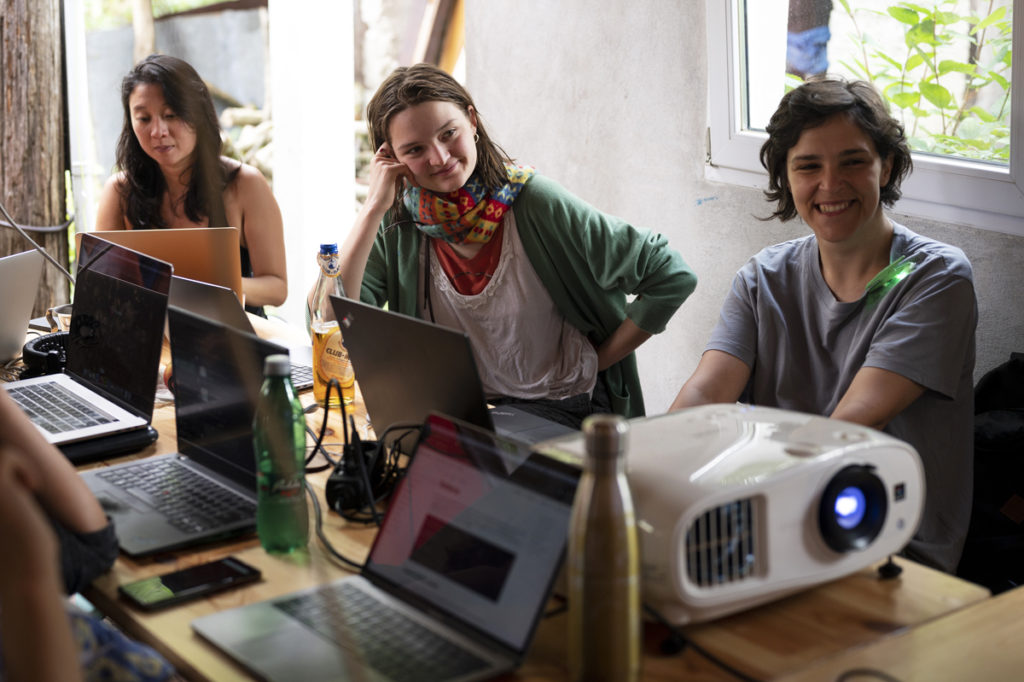
Under the tent, Rob’s workshop was gradually joined by a workshop by the Oscilloscope Music duo, about whom we have already written extensively in the PIFwednesday post. As expected after their amazing AV show on Wednesday, their workshop attracted quite an audience. The participants first learned the basics of safely handling lasers, familiarized themselves with Hansi’s and Chris’s set-up and software, and then tried their hand at laser visualizations.
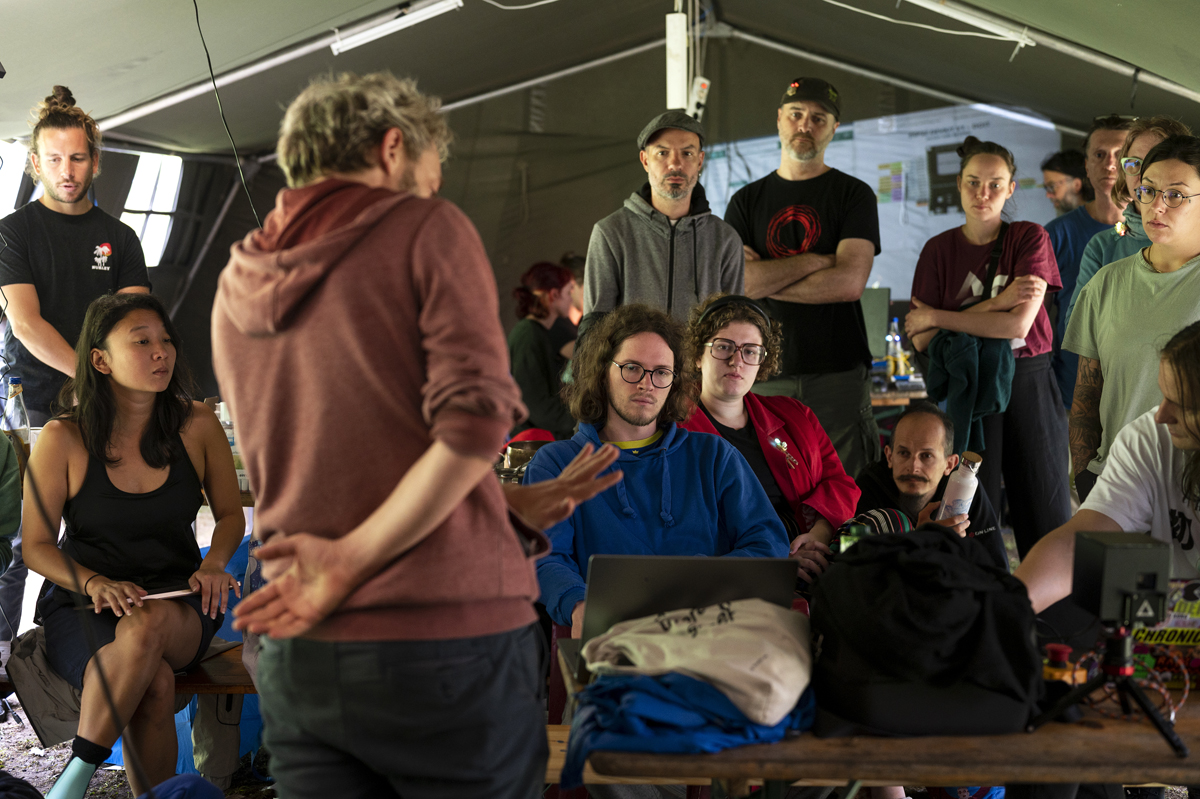
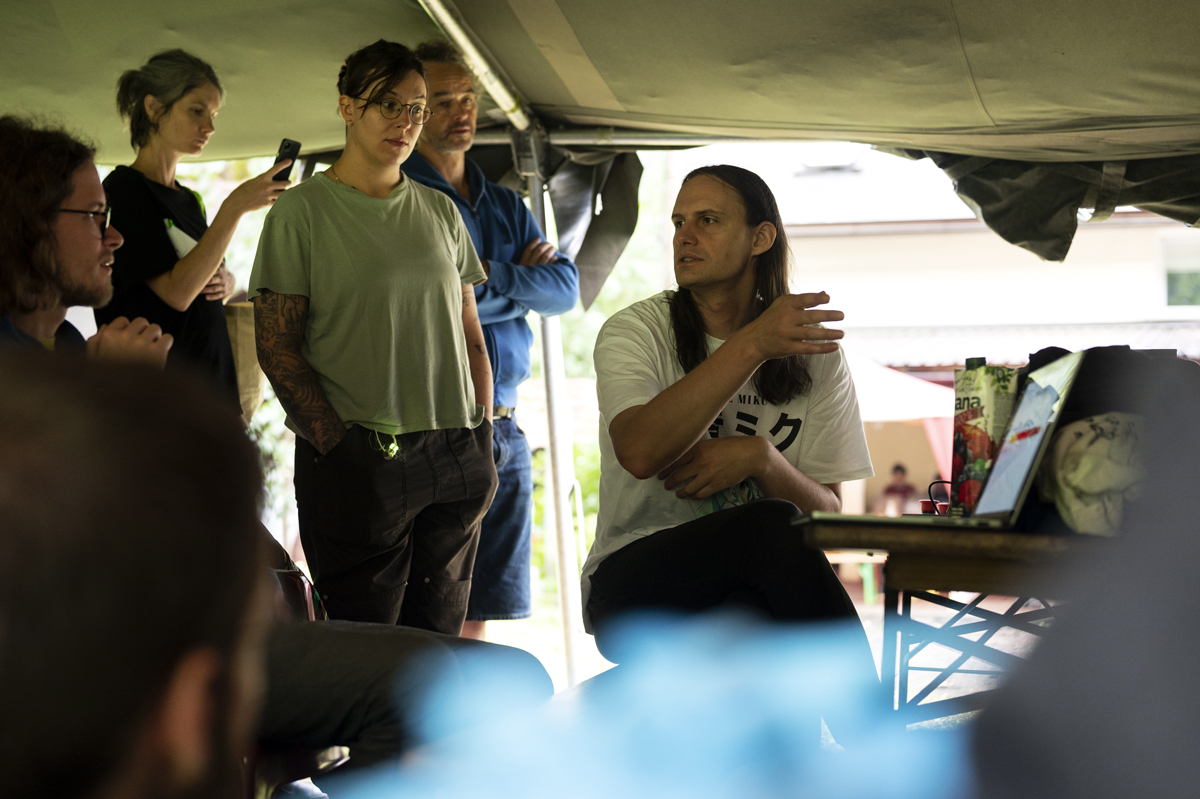
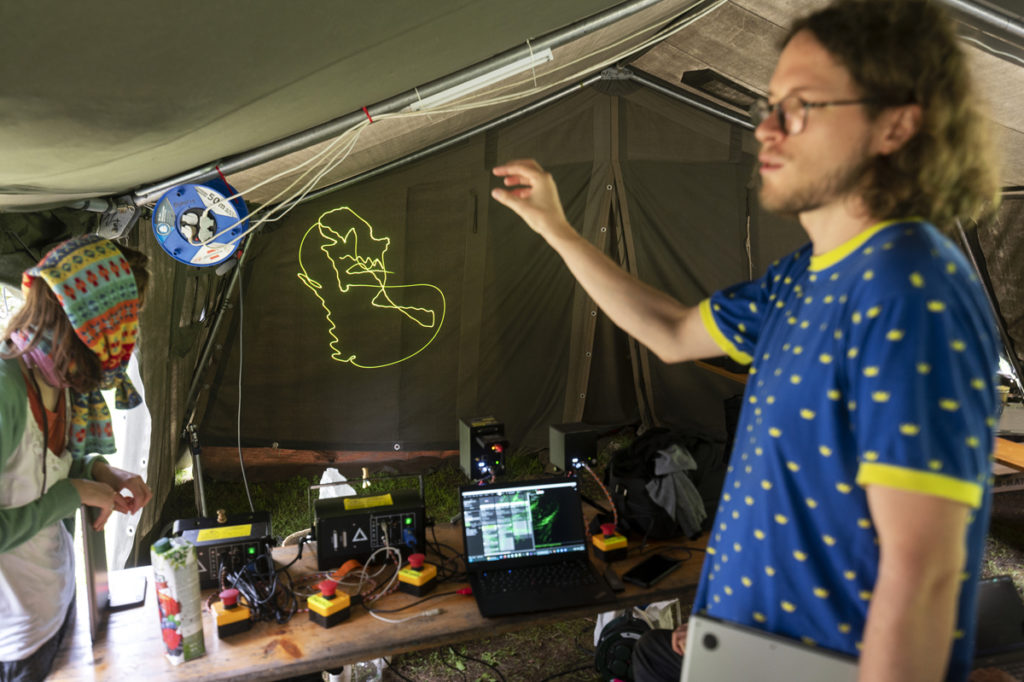
After lunch, a group of anything-food-related enthusiasts gathered at the other side of the PIFcamp for coffee and beetroot cake. Ahac welcomed them in his cosy little corner and invited them to share memories of Dario Cortese, who “really connected PIFcamp with nature”, as our host so aptly put it. They shared stories about this forager and explorer of fermentation, edible wild plants and the surrounding wilderness. If there is one common point among all the stories, it is the fact that everyone who knew him misses Dario. Unfortunately, yours truly had to leave the PIFood corner, and will report on the conversations that took place later in one of our future post.
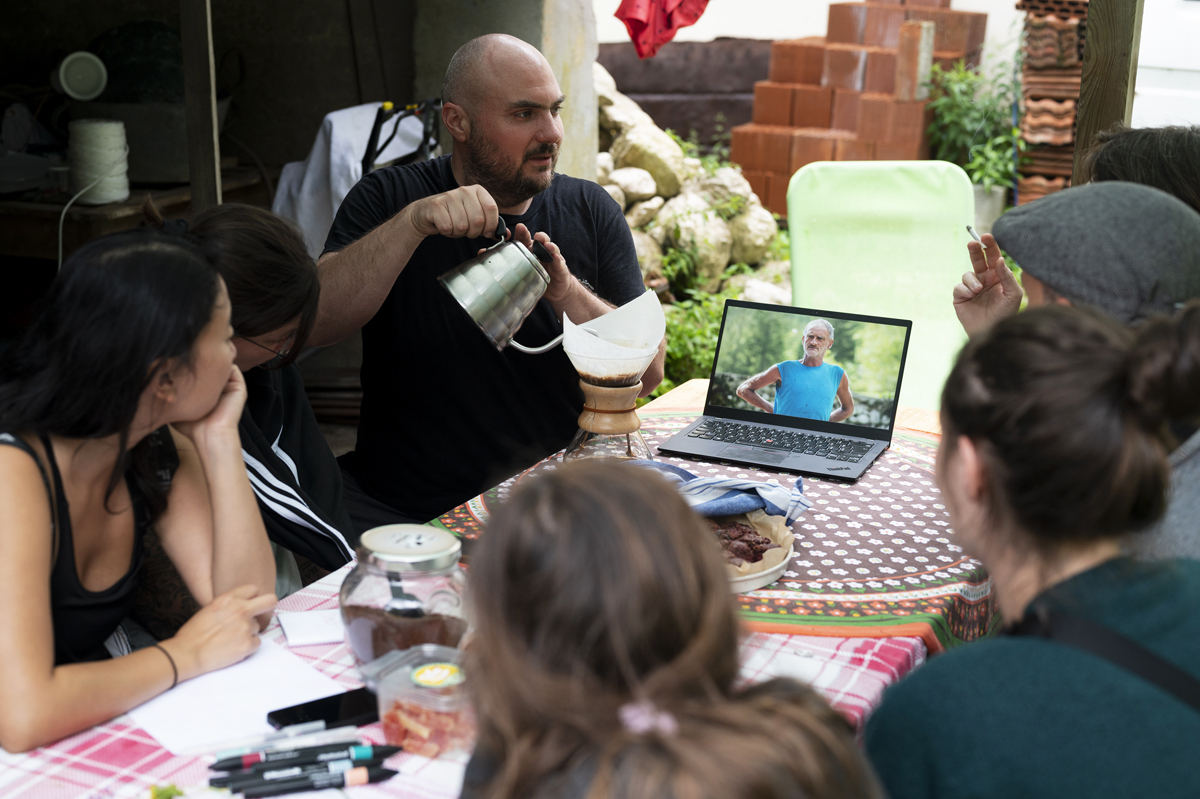
Although it may seem that the PIFlars were unable to progress with their PIFprojects due to the abundance of workshops and rainfall, we can immediately reassure you that this was not the case. If life gives PIFlars the rain, they will come up with a high-tech solution and get on with the job. One of our personal favourites has to be Jelissa’s laptop cover. As often happens at PIFcamp, she didn’t need this solution to move forward with her PIFproject. She teamed up with the artistic duo Swamp_Matter, Eva and Ana Laura, and she was happy to share her coding skills with them. One of the project team members who (like Jelissa) has organically become part of their artistic exploration is Jure, but more on that in the report from Saturday’s presentations. Hint: you’ll be reading about dancing stones.
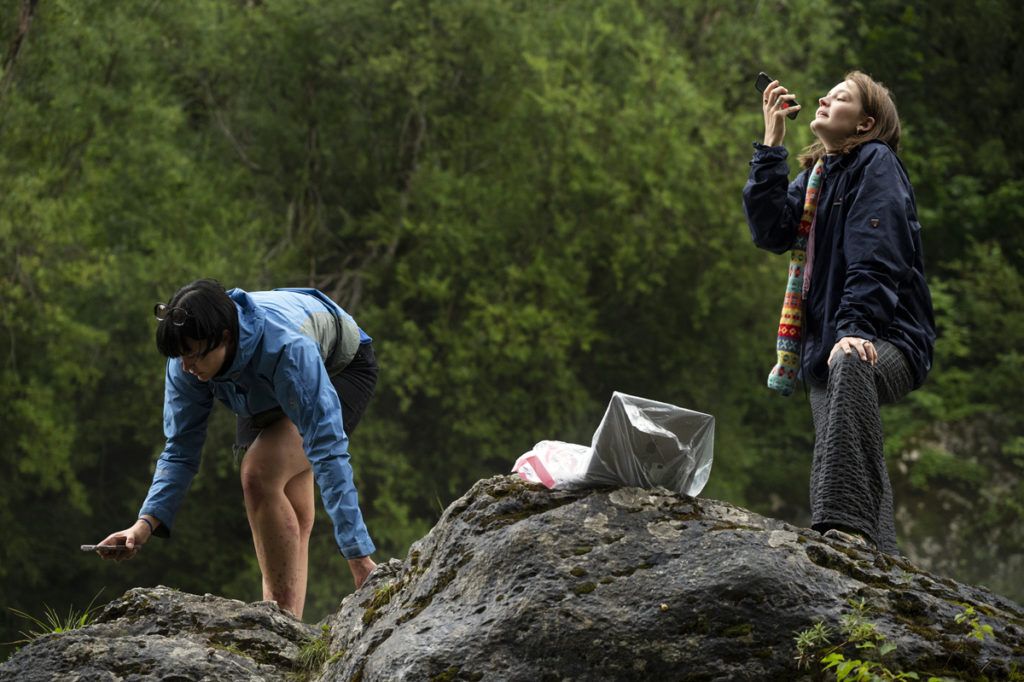
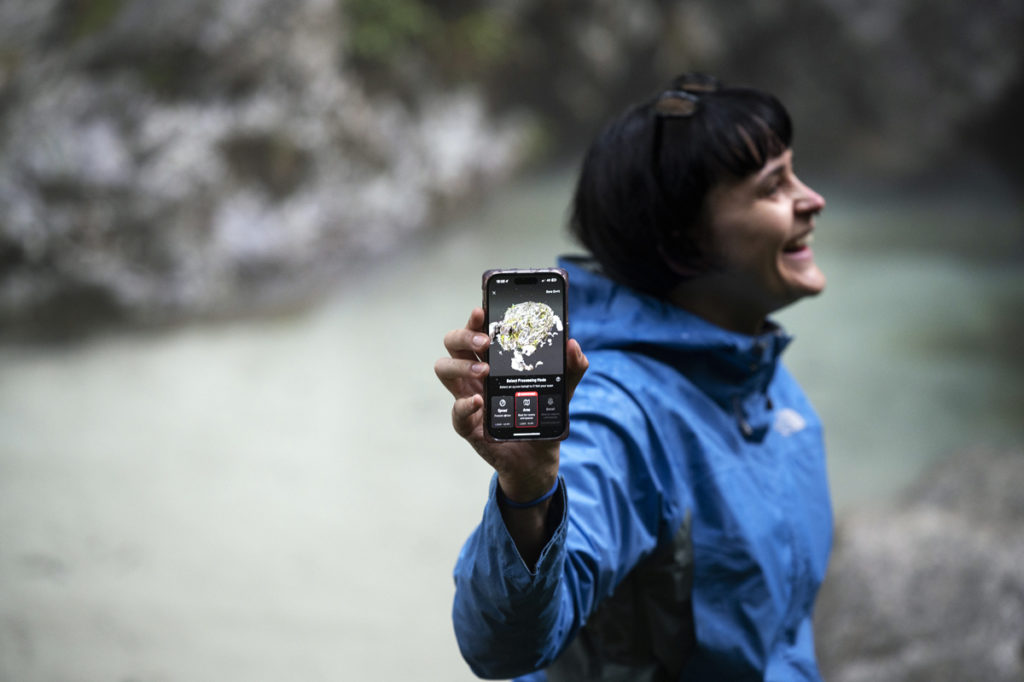
In the evening, the live coder community continued working on their PIFproject of infecting the participants with this artistic practice. Blaž organized a live coding workshop in the Hydra environment, which you may remember from last year’s PIFlog. He was clearly successful in this effort, since all the workshop participants later showed off their newfound knowledge at the From Scratch PIFevent, where they visualized the music of participants from Lina’s workshop and the seasoned live coders.
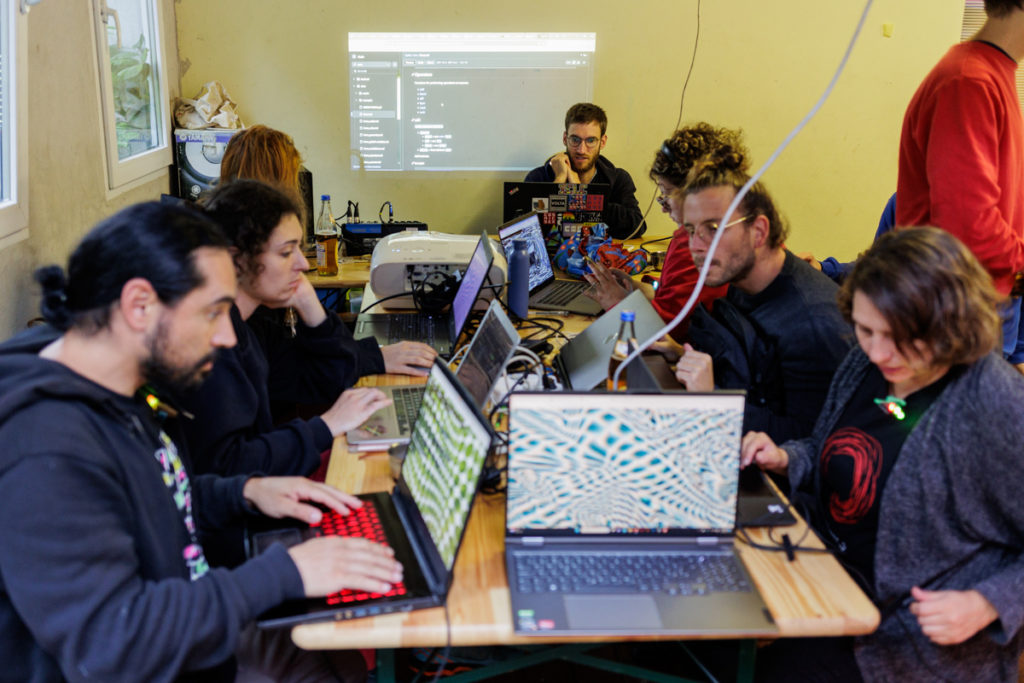
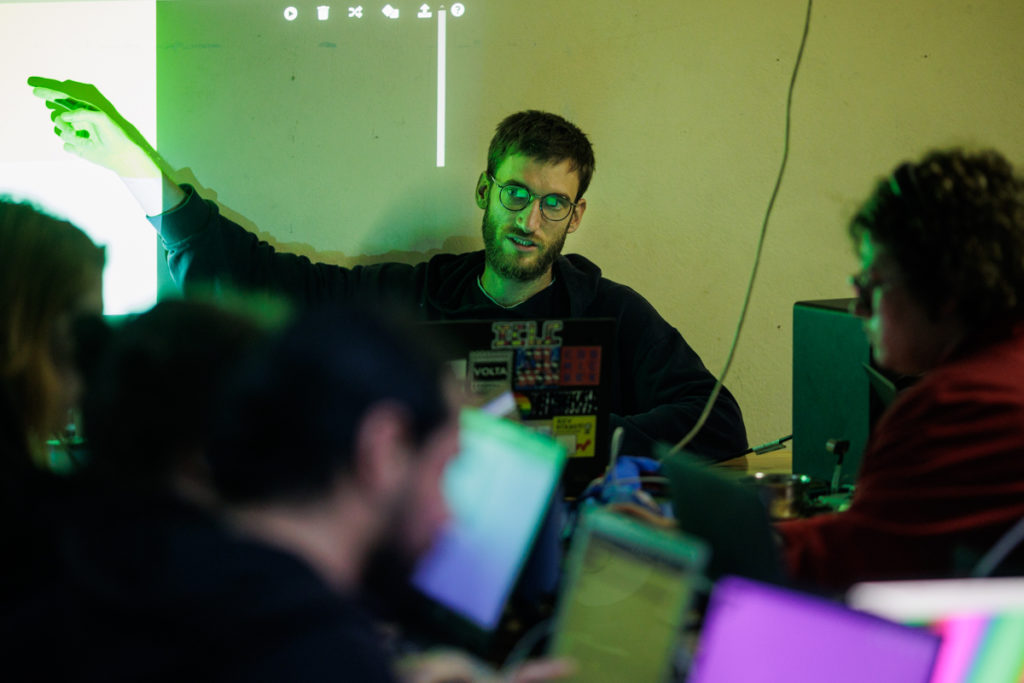
The evening slowly faded into night. Since it’s late, and your reporter has packing and tidying up to do tomorrow, she’ll try to summarize the events in a concise sequence of simple sentences and words, followed by a series of photos: From Scratch with 15 performers, Ewen Chardronnet’s amazing set and a b2b with Blaž, community bonding, a cocktail party, a fierce tarot fight, an epic battle with the level and the perimeter of the PIFlake. Good night!
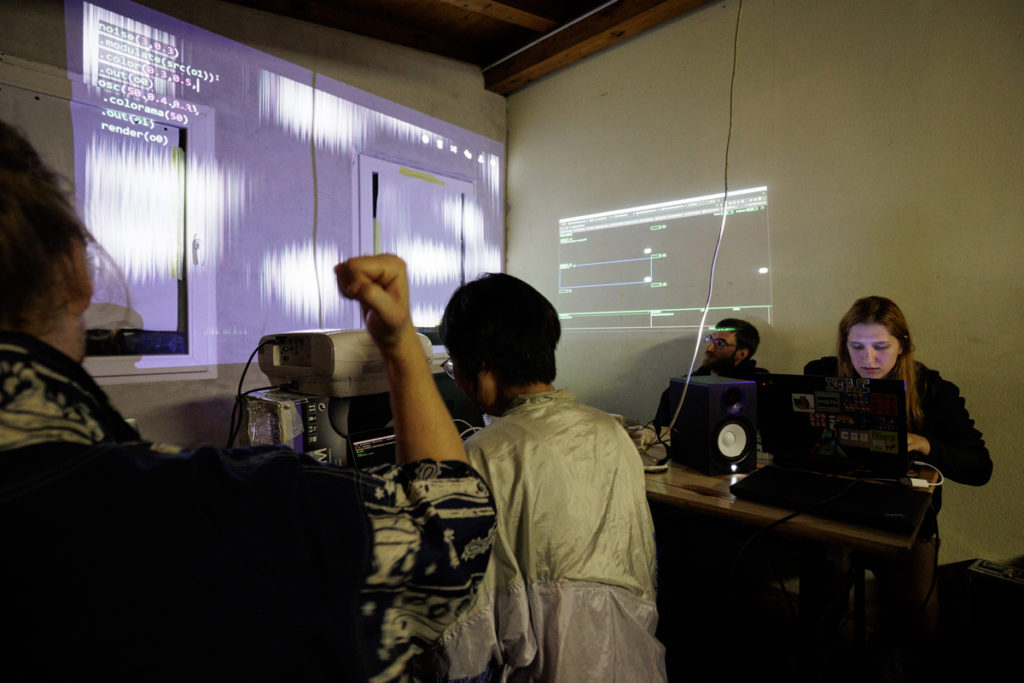
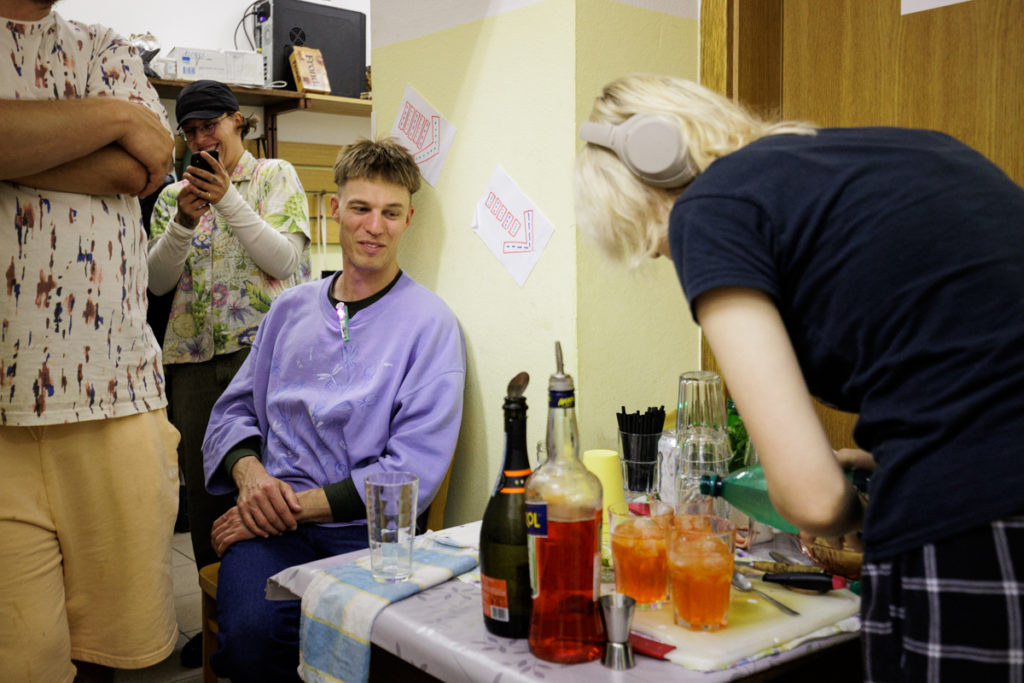
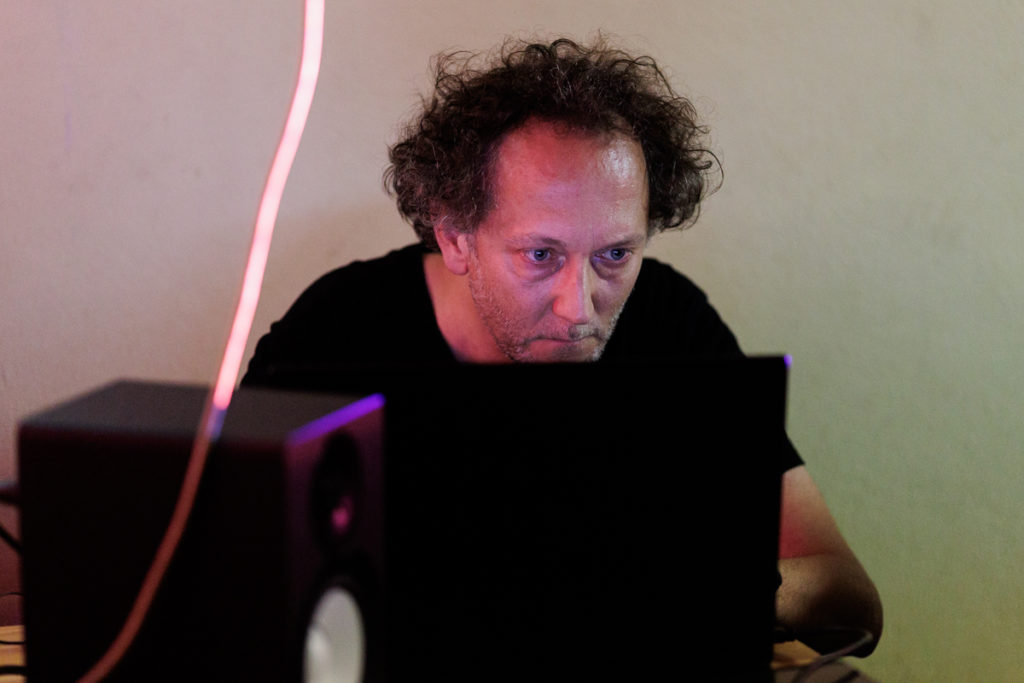
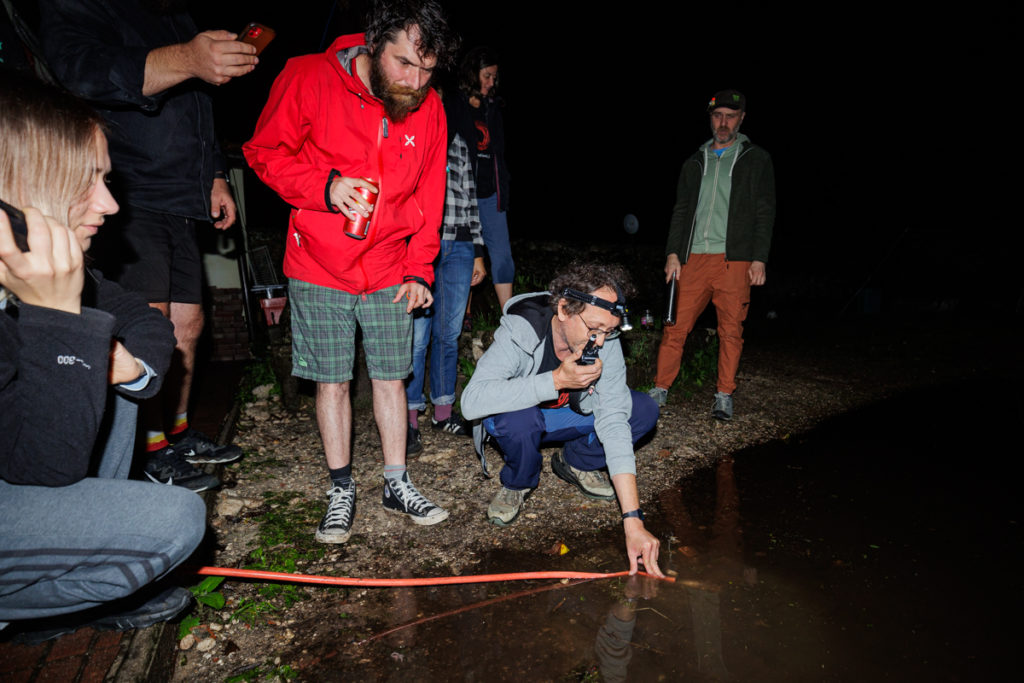
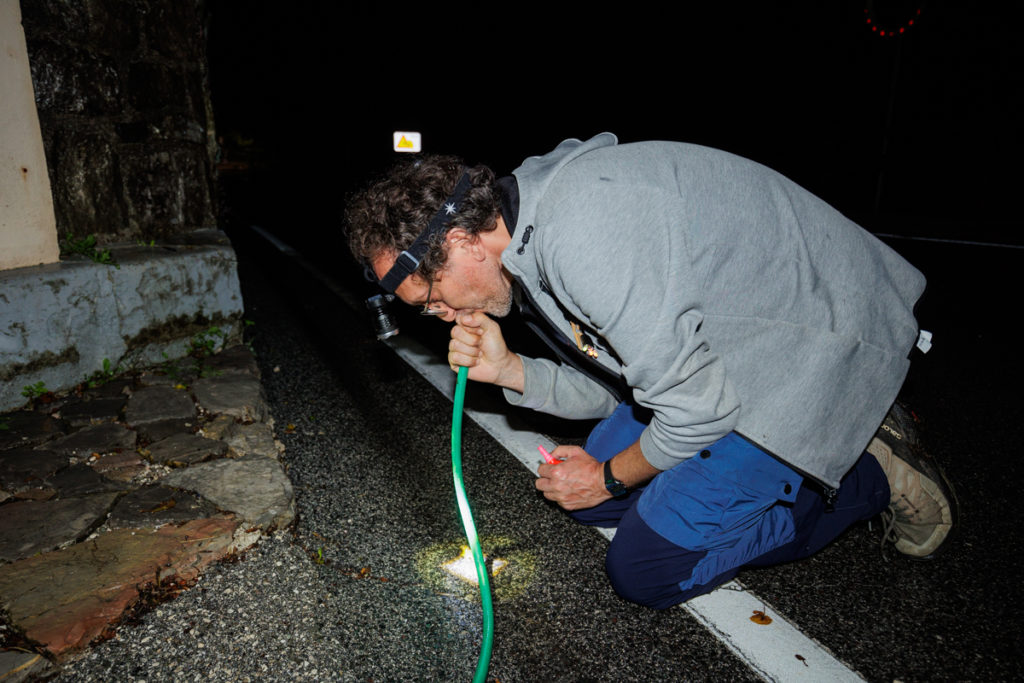
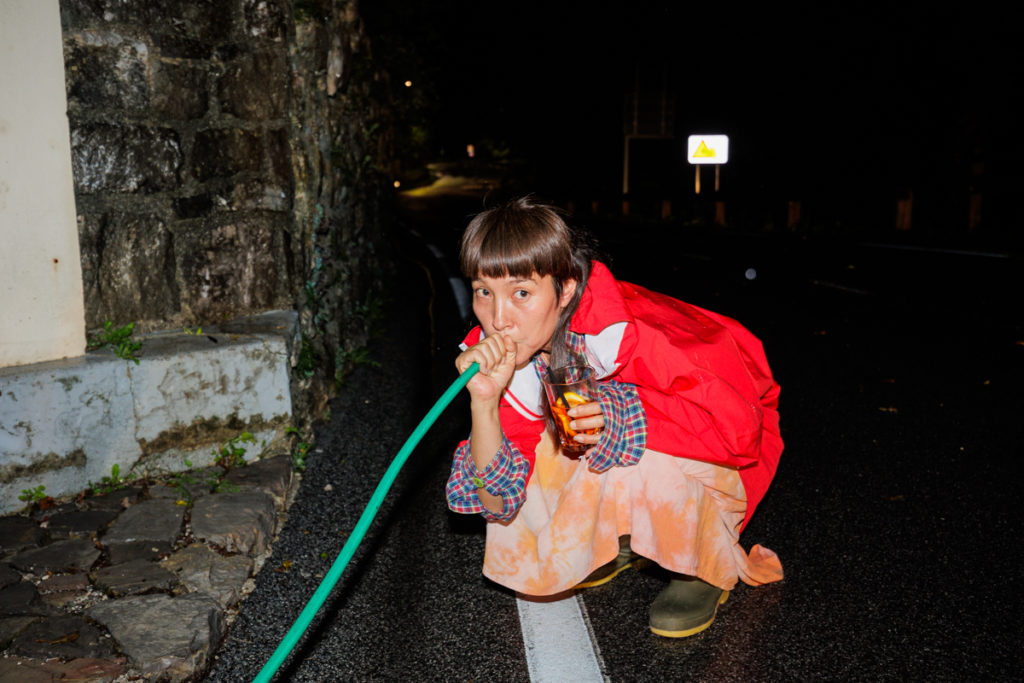
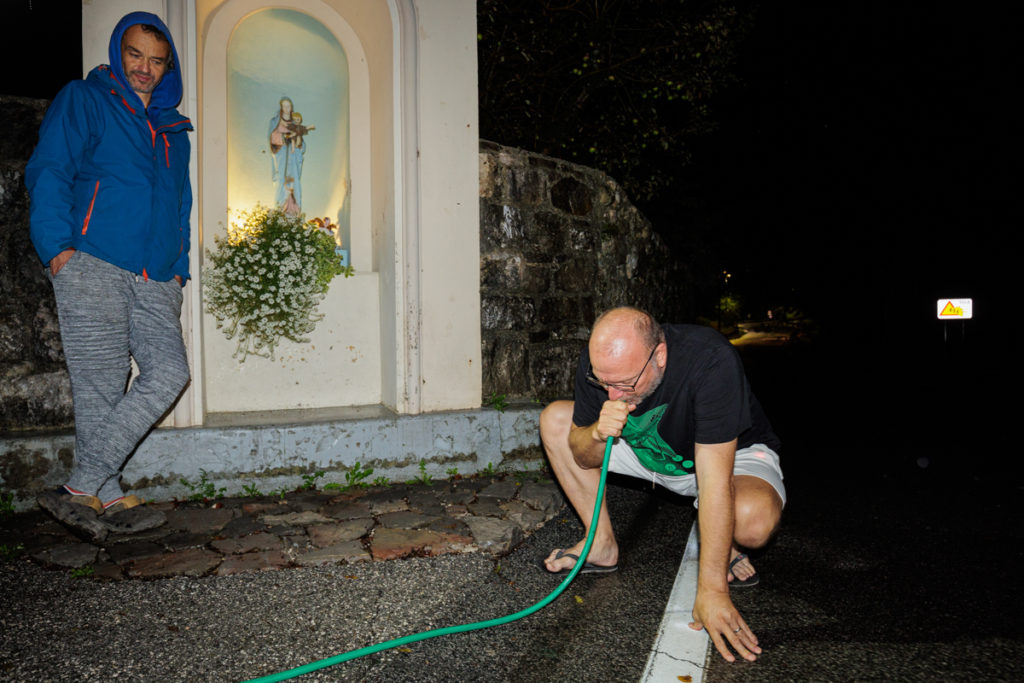
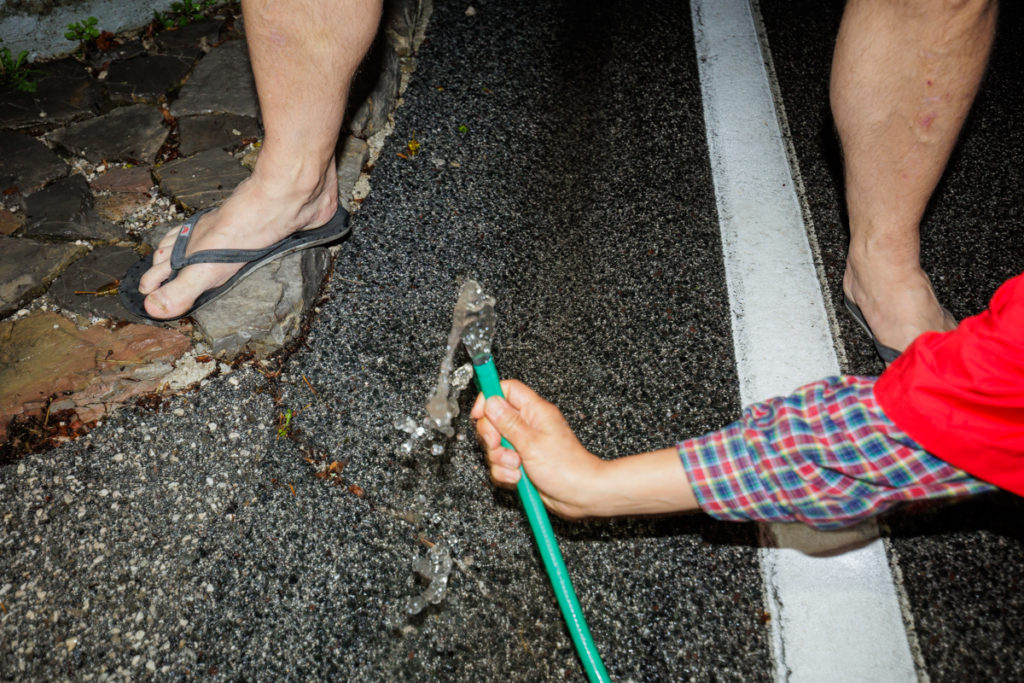
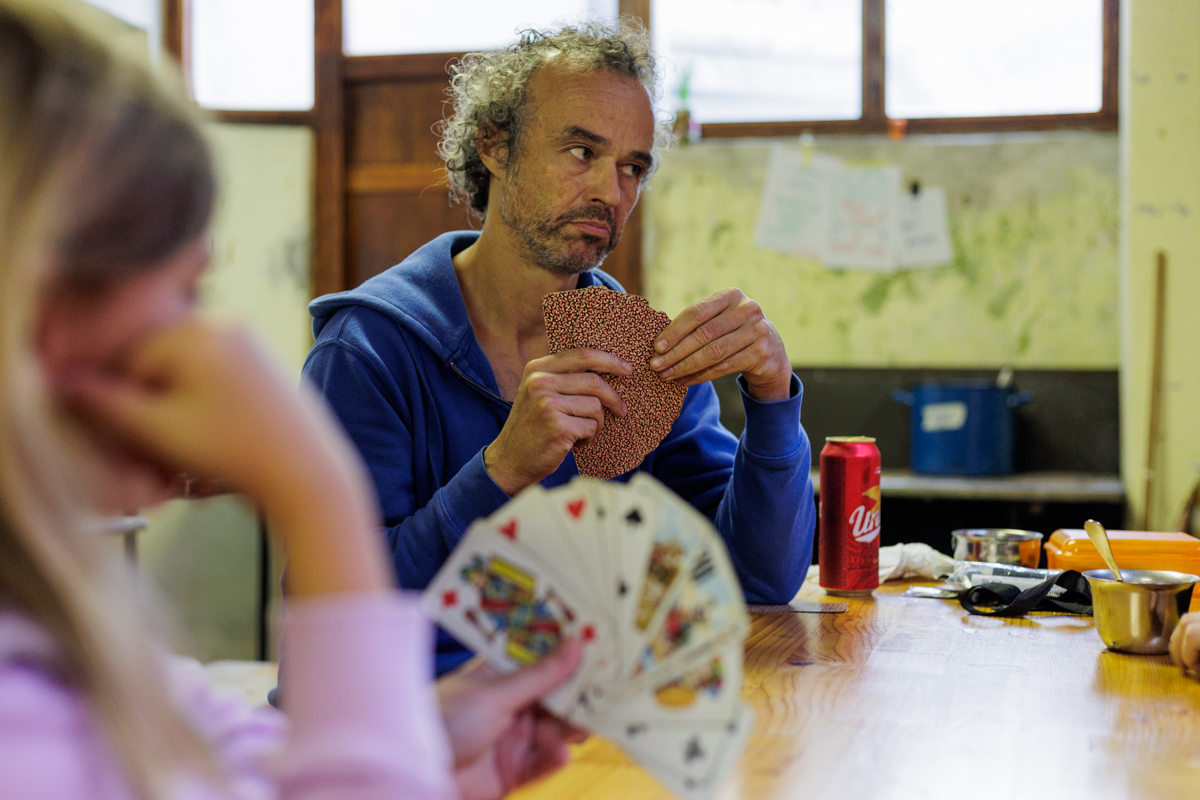
Epic PIFbattles. Photo: Katja Goljat, Matjaž Rušt
